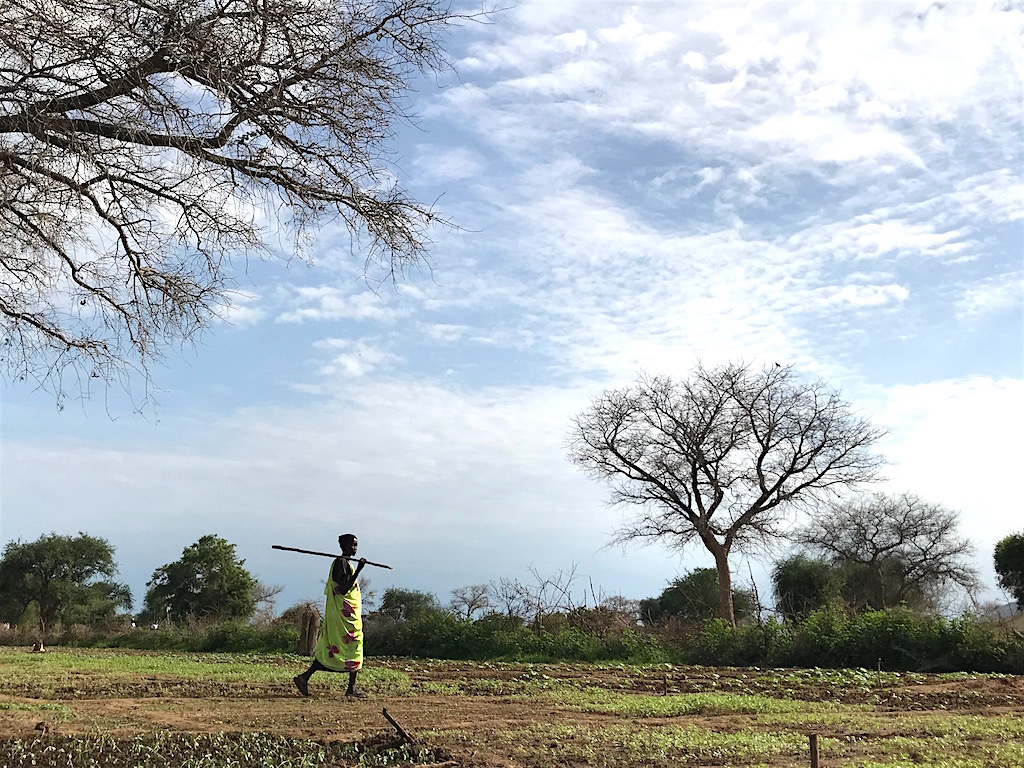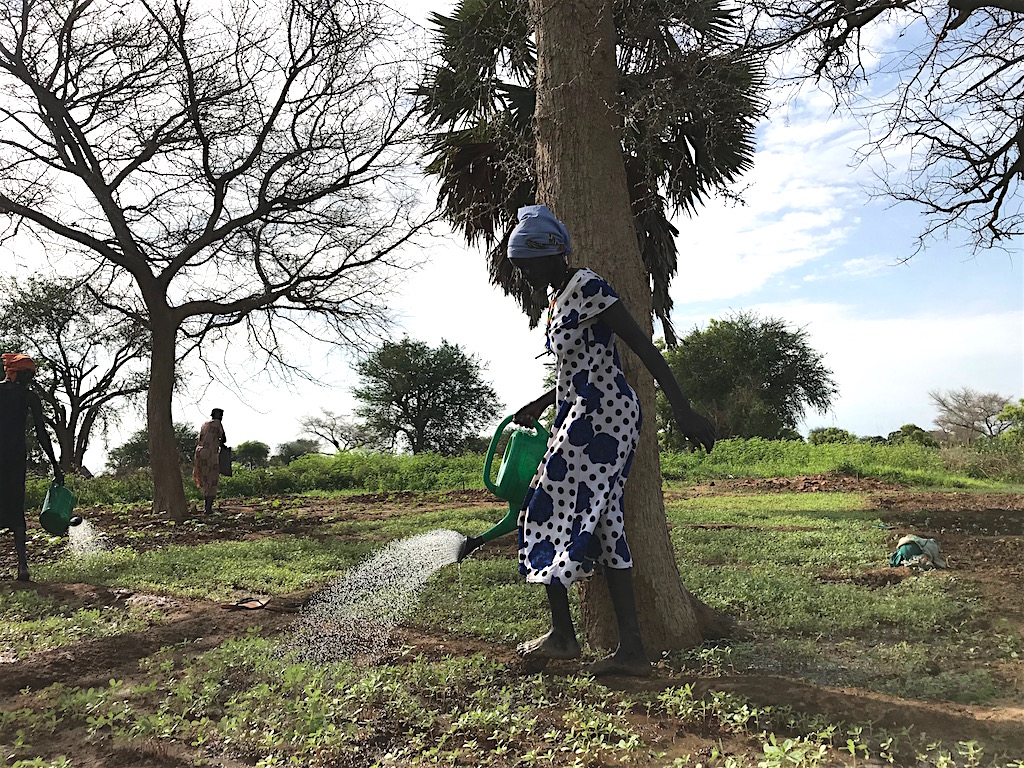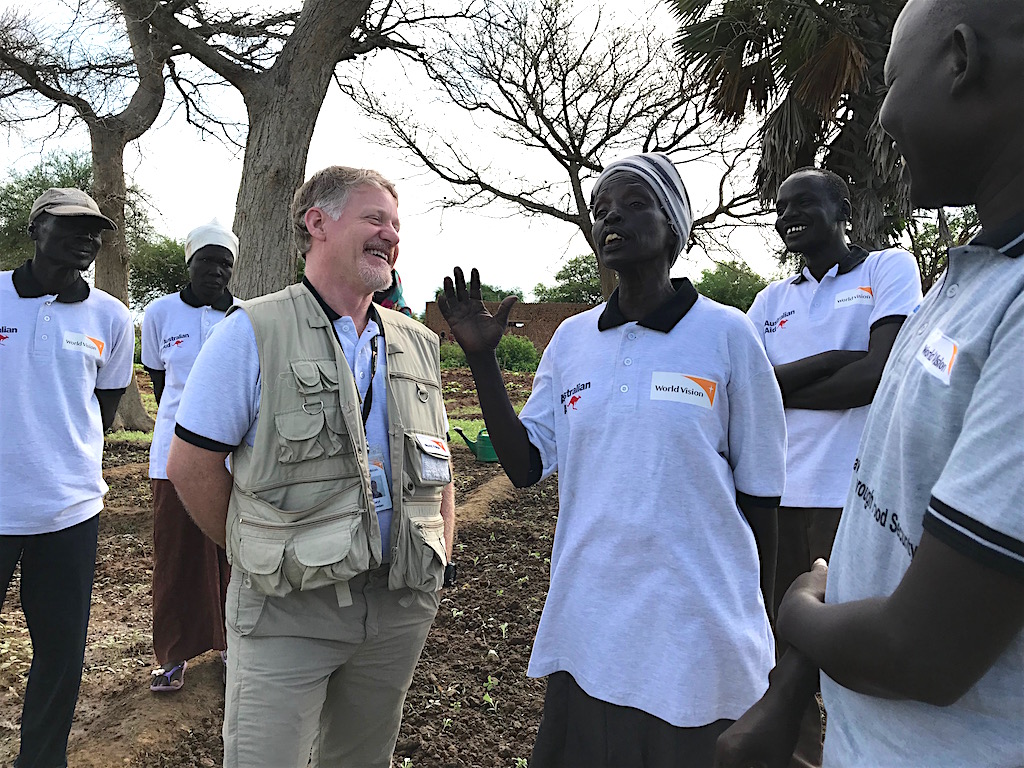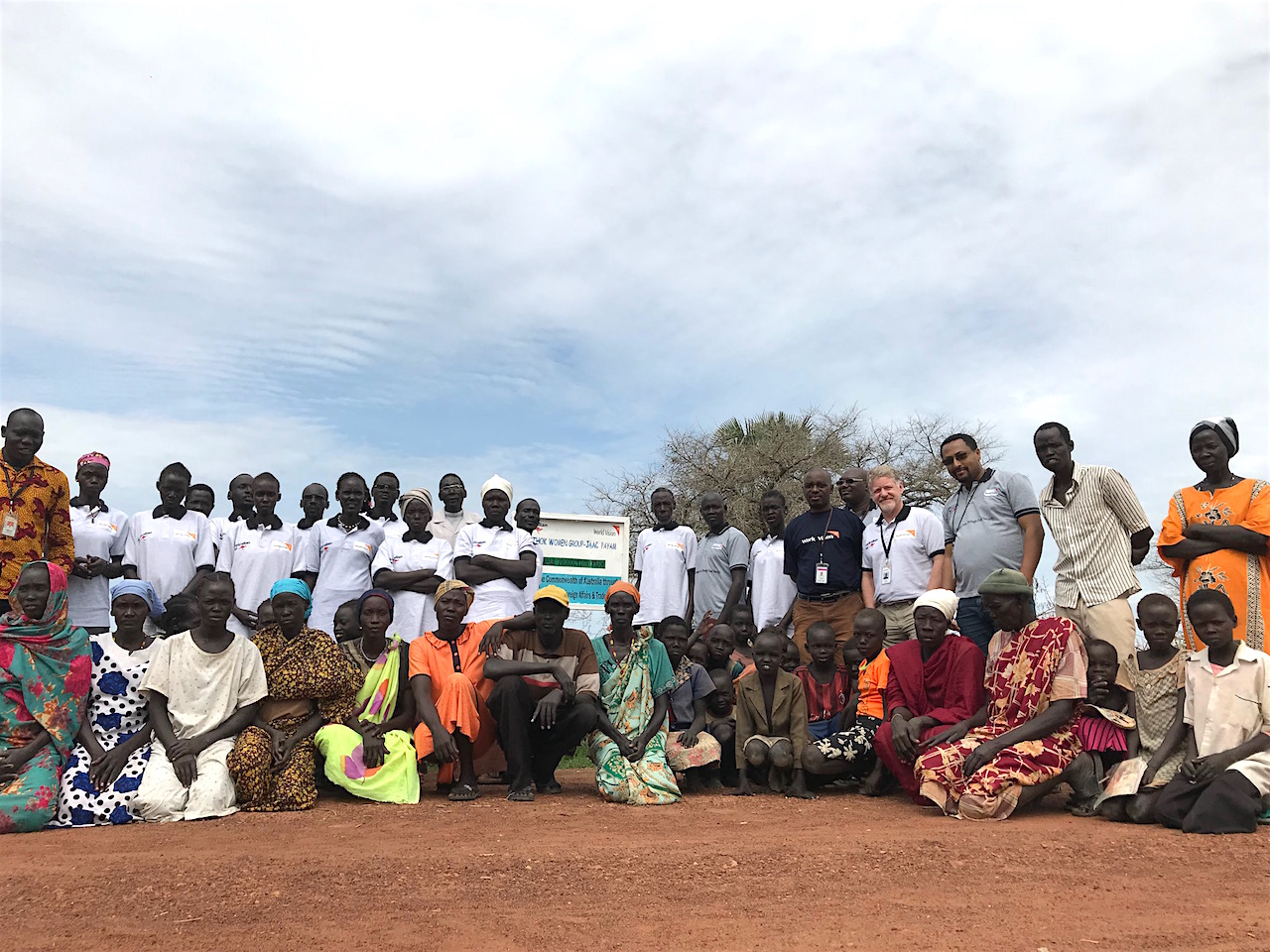Food security program funded by Australian Government brings hope to 90,000 people in South Sudan

When the conflict happened in Wathok, the people in the community fled to other communities for refuge and safety. Many of them lost everything, their houses, farms and whatever meagre properties they owned.
“This project encouraged people to go back. Husbands and wives are helping each other in the gardens and farms. We stopped beating our children. We used to do it before when we have no food to give them”, says Sidonia, a mother of six children.
Siodina explained that there were constant quarrels among husbands and wives in their community for lack of food to eat. When their children start crying asking for food everytime they were hungry, they beat them to stop. What they learned from the project made them realize this is wrong. "Now we also have food to feed them, she says.
Above: A woman prepares for the day's work in the community garden.
The Humanitarian Partnership Agreement (HPA) South Sudan Response (Africa) Project funded by the Australian Government through Department of Foreign Affairs and Trade (DFAT) provides 2,000 households (or 12,000 people) with vegetable kits, working tools and fishing kits and capacity building training to strengthen food security among the families in Aweil North.
The project also raises awareness on gender-based violence including on early child marriage and forced marriage using drama and role-plays shown during distribution of inputs and other events.
Thirty-year old Rebecca, a mother of six, said they have been gardening in their own backyard at home but the project improved the way they do it. “Line farming made it easy for us as we can remove the weeds and water them well. It is simple yet it is improving how we cultivate our farms”, she says.
Above: Angwit is full of hope as she shared how the project is transforming their lives.
Angwit, also a mother of six, added that with their newly acquired skills, they could grow more vegetables to sell in the market. “If we earn enough money, we can provide for our children’s school fees, medicines and other basic needs. We will never be hungry again”, she further says.
Three men and 17 women work in the garden and among them, two are assigned daily to water, weed and watch the plants from animals. County councilor Abuk Kuol Done expressed gratitude for the support provided to the people.
He adds, “Please continue to educate us to be good farmers so that we are prepared to survive the dry season and children will not go hungry.”
Above: Daryl Crowden talks to Mary, one of the group leaders in Wathok.
“Thanks to this DFAT-funded project, hope in the lives of women and children in South Sudan is tangible –and hope is a rare commodity. You see it in the eyes when a mum says that now she can pay school fees, buy shoes and her daughter has a future”, says Daryl Crowden, World Vision Australia’s Head of Humanitarian & Emergency Affairs (Field Impact).
Crowden visited the projects in Northern Bahr El Gazal this week and was impressed by the enthusiasm and commitment of the people as well as World Vision’s team on the ground.
Above: Crowden was impressed with the team's commitment and hard work to ensure the project's implementation despite many challenges.
He further adds, “I have been impressed by the capability and the attitude of World Vision’s team in Aweil North. I have done this job long enough to spot a fake, but watching this team in action with officials and children alike, you can see the respect each has for the other.”
The entire food security project compotent covers Aweil North, East and South counties of Northern Bahr El Gazal State, as well as Koch county in Unity State for 15,000 households or 90,000 people. This is complemented by food assistance and school feeding program for children from the World Food Programme (WFP) in Aweil North.
Above: The people in Wathok became one closely-knit community, thanks to the project and their desire to improve their lives for the sake of their children.




